How I changed my mind about living zero waste and plastic-free (a story in 5 stages)
A friend of mine volunteers at a local food rescue organisation, which collects mostly pre-packaged out-of-date (well, out-of-date as described by the packaging), damaged and excess food, and redistributes to charities around the city.
Not all the food that is rescued is edible, but some of what isn’t edible for humans is still good for chickens. Yesterday, she dropped around some rescued food for my girls.
Like most of what they rescue, it came wrapped in plastic. I gave the contents to my ladies (who gobbled up the beetroot slaw, tolerated the broccoli, picked at the snow peas and snubbed the watercress completely), and rinsed out the packaging ready to take to redcycle for recycling.

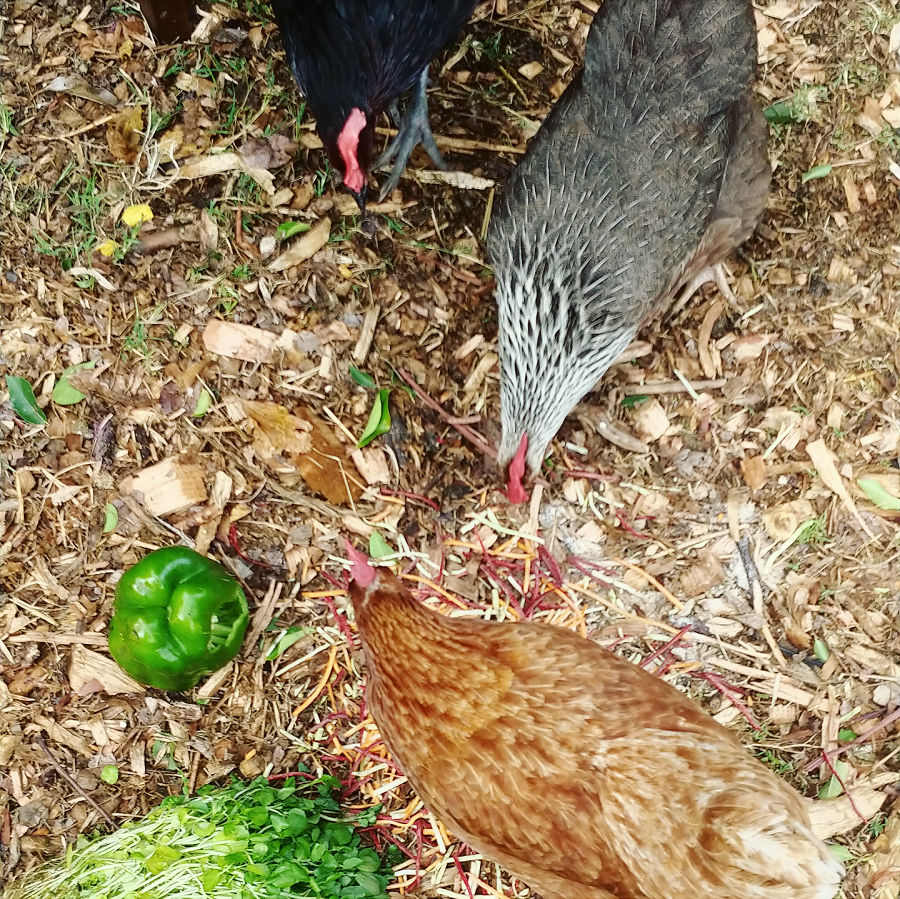
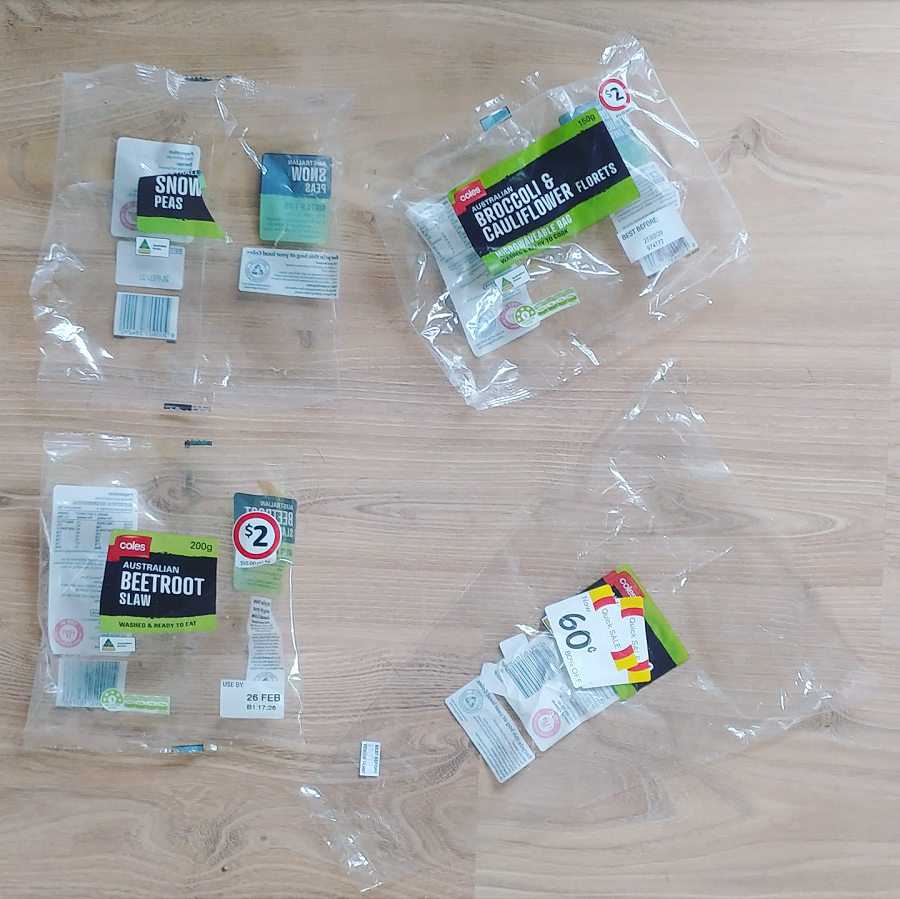
Wet single-use plastic packaging has a really yuck feel to it; it was literally making my skin crawl as I washed it out. It got me thinking about how my feelings for and perception of plastic has changed over the years. At one point I’d have thought nothing of a fridge full of this plastic (oh, and I wouldn’t have been washing it out, nor recycling it); now, having just four pieces on the draining board makes me feel uncomfortable.
There was also a time, in the middle, where I’d have refused point blank to even allow this plastic into my house.
So why has my view on plastic and the way I live zero waste changed over the years? For each of the stages, I can pinpoint a reason why I made the choice, and a reason why that changed. After all, trying to live sustainably in never black and white, and there’s a lot of nuance around different issues.
Over time, I’ve changed my mind a few times. Perhaps you’ve come to different conclusions and made different choices. Or perhaps you can relate to some of these stages, too.
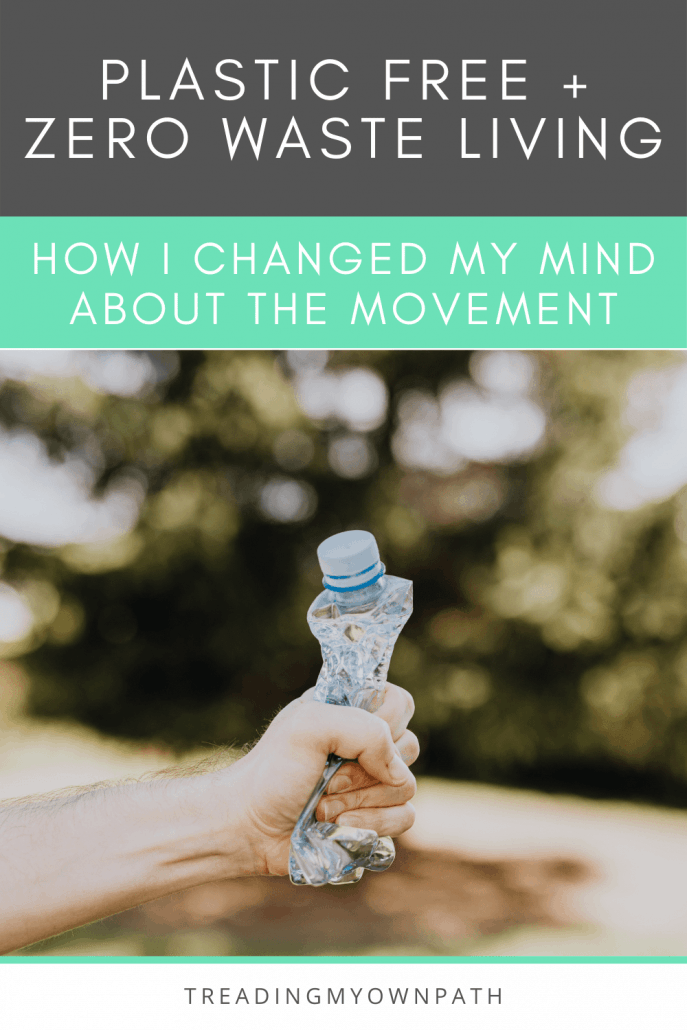
Just starting out (the learning and ‘making mistakes’ stage)
I decided to give up plastic in June 2012, after watching the documentary Bag It. Pretty much overnight, I changed my perspective on plastic completely. I went from the person buying all the plastic whilst complaining that ‘somebody should do something about that’ – and thinking I was some kind of sustainability superhero because I had reusable shopping bags – to realising that there was so much more I could do.
Changing your perspective doesn’t mean knowing all the answers, or doing all the things. For me, it meant starting out by working on changing my habits.
My first focus was avoiding single-use plastic and packaging, particularly when food shopping and buying bathroom and cleaning products.
One of the first changes I made was buying a (plastic) KeepCup, and I didn’t see any irony in buying a plastic cup to refuse plastic (although at the time, KeepCup was the only brand on the market and they hadn’t invented a glass version yet).
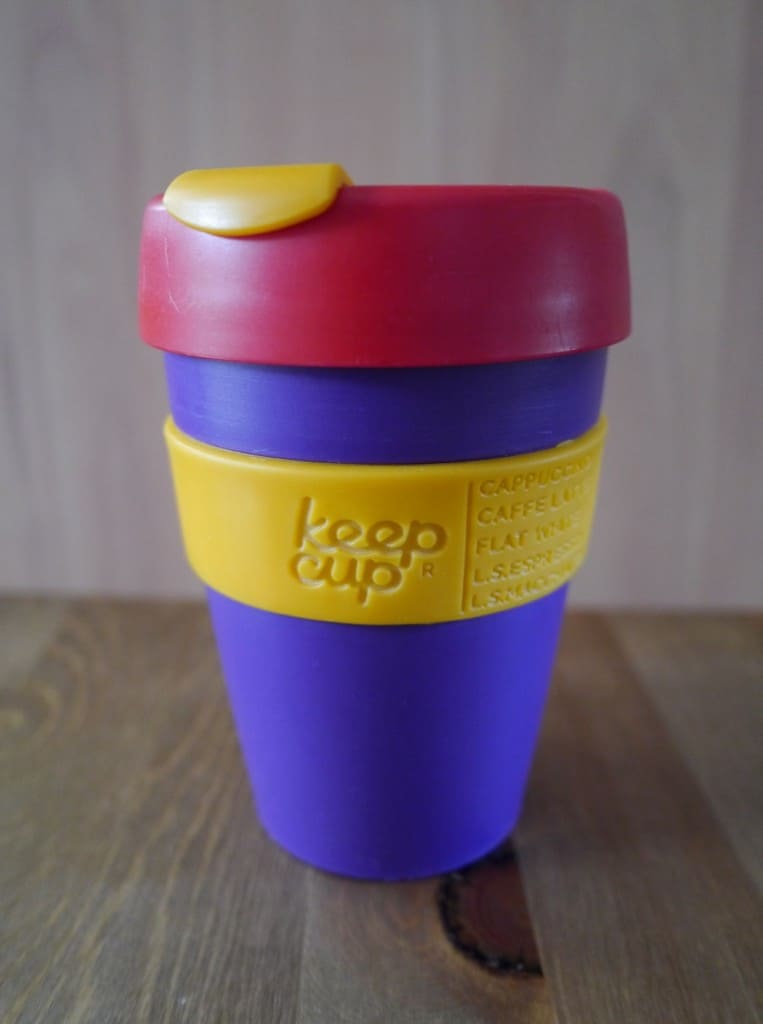
I did buy a few other things, but I was lucky in those days that there weren’t a lot of products to entice me with clever marketing. Someone making the same choices today could easily spend a small fortune!
(Which is fine if you both have small fortune and will use everything you buy – and often. But it is an expensive way to learn what you do and don’t actually need.)
There were a lot of mistakes, in the early days. Packets with sneaky plastic, forgetfulness, little awareness around greenwashing and so taking claims like ‘eco-friendly’ on products at face value.
But the more I learned, the better at refusing plastic I got.
From ‘plastic-free’ to ‘zero waste’ (the understanding waste stage)
About 6 months in, I visited a recycling facility (or more technically, a materials recovery facility – which sorts materials but doesn’t actually recycle them).
It made me realise that switching out plastic for other materials (paper, cardboard, glass and metal) didn’t make much sense if these things were also used only once too.

So I committed to reduce all single-use packaging, not just plastic.
I also started thinking about all plastic, not just the single-use stuff. I began to choose non-plastic replacements for items, and non-plastic reusables.
Plastic things – even reusables – still tend to break or wear out (compared to their plastic-free alternatives), and the less I used plastic, the less I wanted to use plastic.
I wondered if I’d done the wrong thing by buying plastic reusables. I purchased plastic-free reusables, but then felt conflicted because buying new stuff (even plastic-free stuff) uses resources and creates waste.
The plastic-free zero waste purist (the ‘uncompromising’ stage)
By this time, all of my habits were embedded, and those who knew me knew that I didn’t use plastic and was serious about reducing my waste. More and more solutions were appearing – from more people writing about waste and sharing ideas, to online and social networks allowing people to share stuff, and more bulk stores and companies focusing on waste reduction with their products and services.
Living with no plastic and no waste was getting easier. I was also testing my boundaries, refusing to let plastic through my door and really pushing myself to create as little waste as possible.
This was the time when the media started talking about zero waste, and there was a lot of focus on fitting your annual waste in a jam jar. I did it myself for a year.
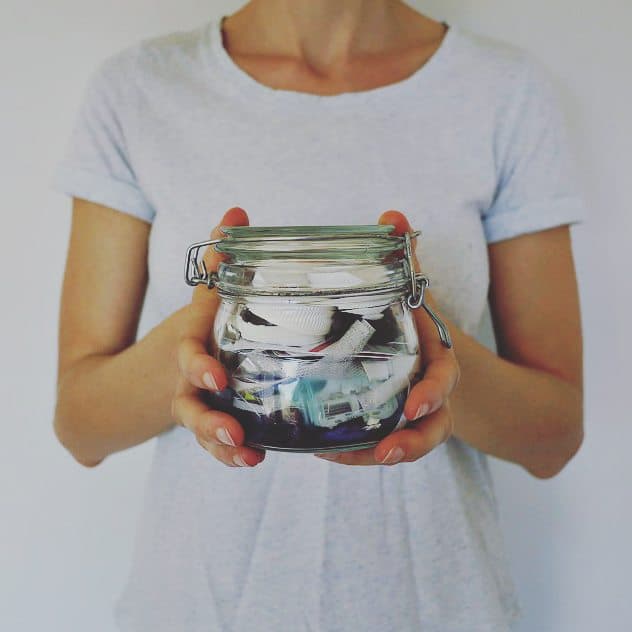
This was definitely the least pleasant stage to be in – both for me, and probably those close to me.
So why was it unpleasant?
Well, I definitely put a lot of pressure on myself. Don’t get me wrong, I love a challenge and I love working out ways to solve problems and reduce my waste. But the ‘waste-in-a-jam-jar’ year meant focusing on the minutiae in a way that never really felt comfortable with me. It just didn’t feel like the best use of my time or energy.
I felt like a fraud for those things I didn’t put in the jar – like the glass bottle of washing up liquid I smashed on my concrete floor, or a label I tossed in a bin whilst out in a moment of forgetfulness.
I also had a few instances where people I knew told me that I made them feel guilty. Not by necessarily even doing or saying anything (although I’m not always known for my tact) – sometimes just my being there made people feel guilty about their choices. Which was rubbish for all of us.
And there were definitely times here when I was more…robust…with my expectations of others. It wasn’t deliberate – sometimes when you’ve come so far you can forget where you were, and that others are still there.
Honestly, it might have been sustainable for the planet, but it didn’t feel sustainable for me (or those around me).
Everything is interconnected (the ‘joining the dots’ stage)
The more I learned about waste, the more I discovered about the waste that happens before stuff comes through our front doors, and the more I understood waste as something bigger than packaging or plastic.
I let go of chasing the ideal of being perfectly zero waste, and started thinking more broadly about the issues.
Waste is about much more than glass jars or plastic bags.
For example, buying food packaged without plastic that then goes bad in the fridge (because the plastic is what helps keeps it fresh) is just creating a different kind of waste.
Or buying a brand new ethically made and ‘sustainably sourced’ thing from overseas (with brand new materials and a big carbon footprint) creates more waste than making do with the less-shiny thing available in the second-hand store.
It’s a hollow victory when you can cram your annual waste into a jam jar, but the majority of society is carrying on as normal. I became less interested in my personal waste ‘achievement’ and more interested in how to create change in my community.
It seemed – still seems – like a better use of my energy to share what I know and help others make changes than sit back and feel like my job is done.
Not sweating the small stuff (the ‘bigger picture’ stage)
I’ve realised that I care too much about too many different aspects of waste to focus single-mindedly on one issue.
I care about plastic waste, but I also care about food waste.
I care about supporting ethical and sustainable businesses producing responsible products, but I care about keeping resources in use by choosing second-hand, and reducing consumption by making do.
I care about my own personal waste footprint, and I also care about making waste reduction more accessible to others.
I’m keen to reduce the waste that I create, and I’m also interested in reducing waste further up the waste stream.
So now, I try to let the small and inconsequential stuff go in recognition of the bigger picture.
I’ll refuse a plastic bag at the store, but I’ll take a plastic sack filled with spent coffee grounds from a cafe (to put in my compost bin) that might otherwise go to landfill.
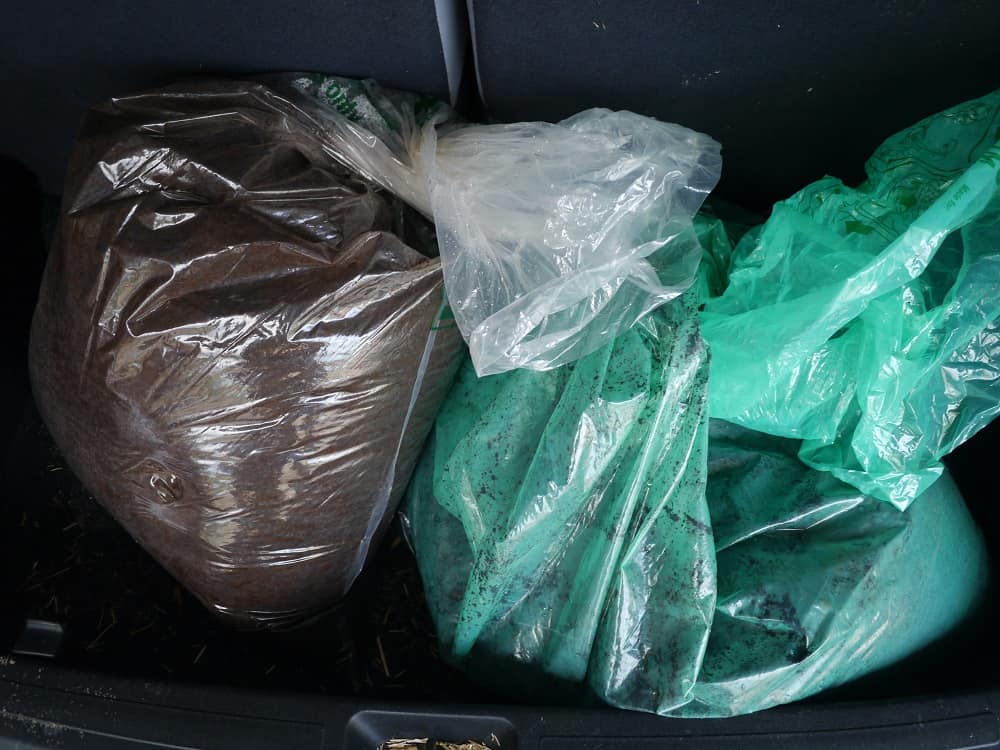
I won’t buy plastic-packaged food for myself, but I’ll accept it rescued from the bin (to feed myself or the chickens).
I’ll reuse plastic containers in existence rather than buying a brand new metal (plastic-free) version.
I‘m not saying that these choices are the best or right choices, they are simply what work for me, at this moment. The way I feel about plastic and waste has changed over the years, and I’m sure it will change again in the future.
Navigating waste is often complicated, and there tend to be trade-offs one way or another.
I wanted to share this because I really don’t think there’s one way to tackle waste. It can feel like a minefield because there are so many choices and so much conflicting advice. It’s an imperfect world and whilst it isn’t always possible to know what the best choice is, the important thing is that we try.
My advice is: don’t sweat the small stuff. Just do your best.
Now I’d love to hear from you! Have you changed your thoughts around plastic and waste as you’ve started making changes? Have your priorities shifted or stayed the same? Do you prefer to focus on one aspect of waste, or try to navigate the different aspects? Have you experienced these stages… or different ones? Any other thoughts? Please leave a comment below!
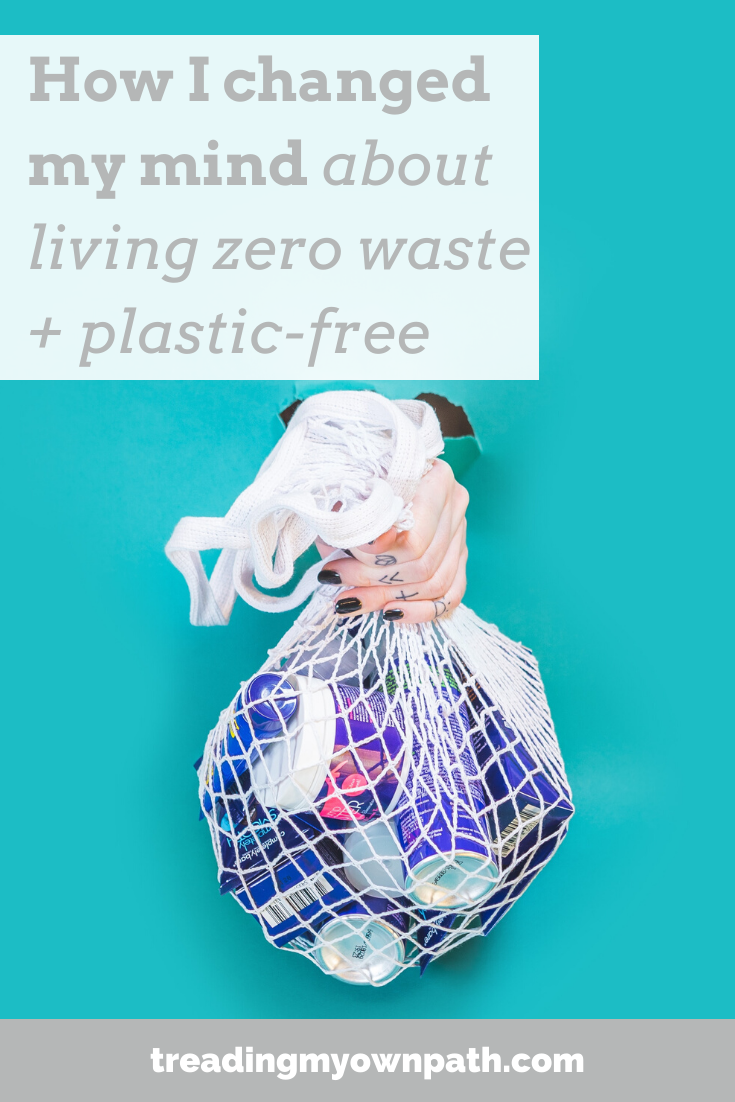
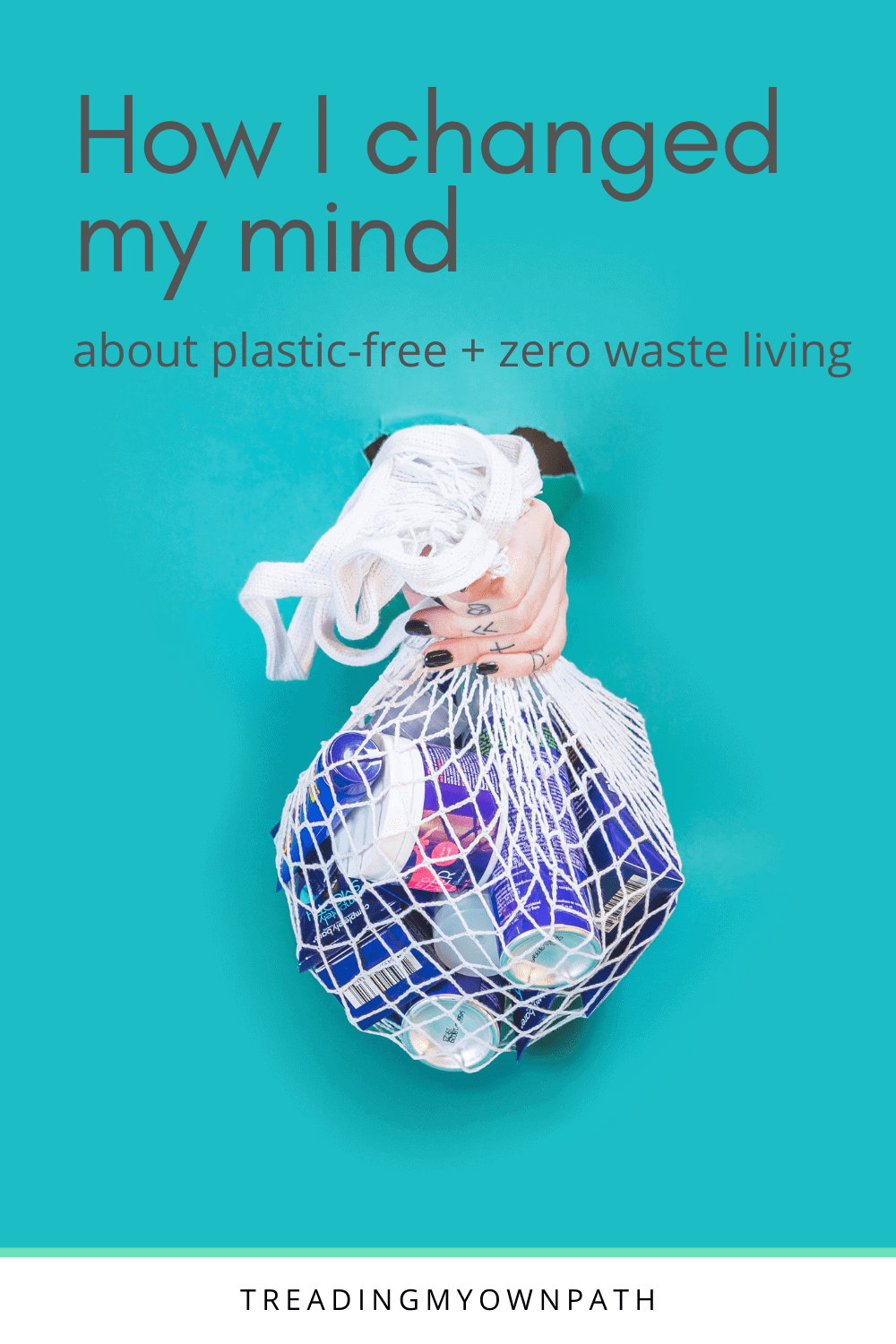
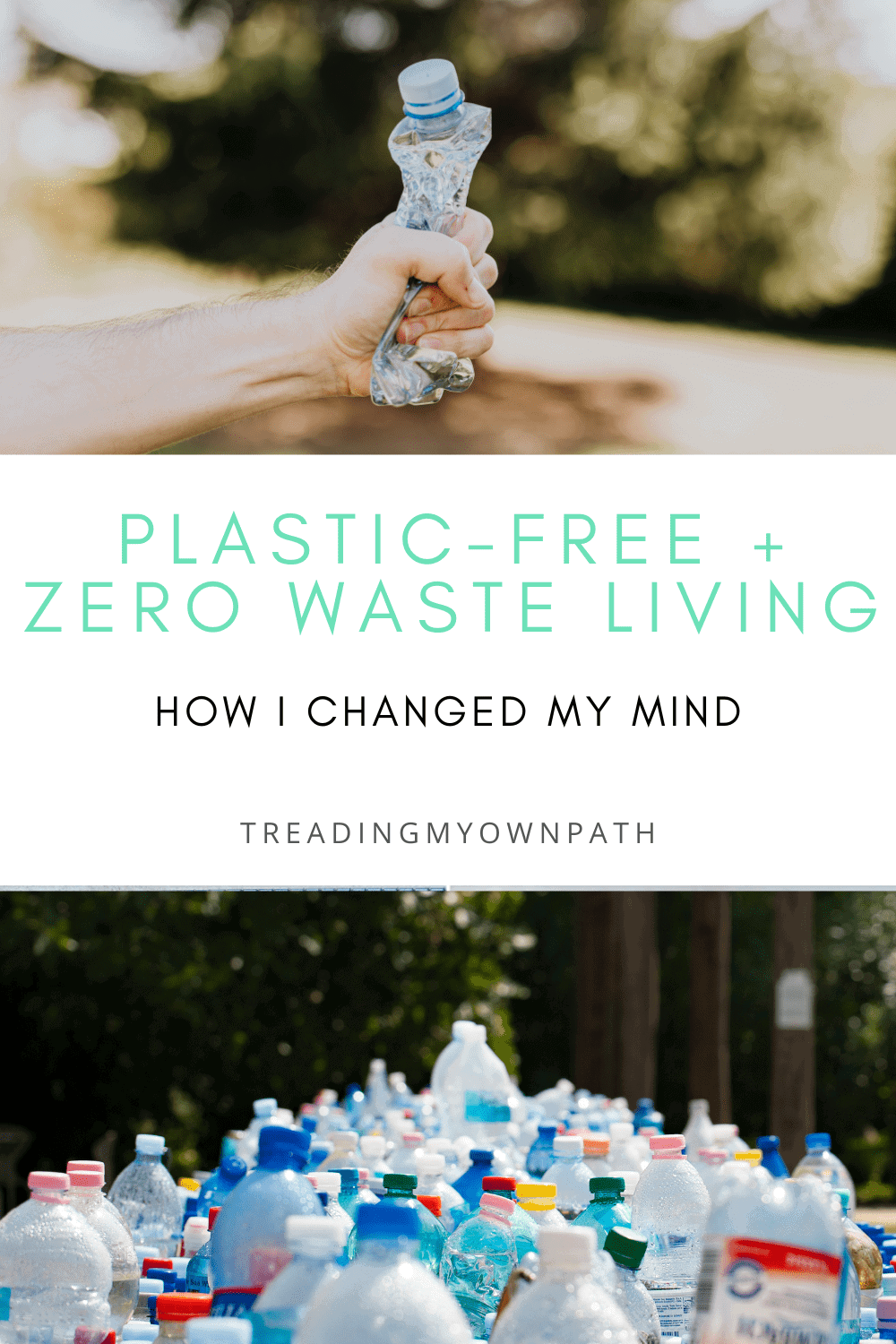
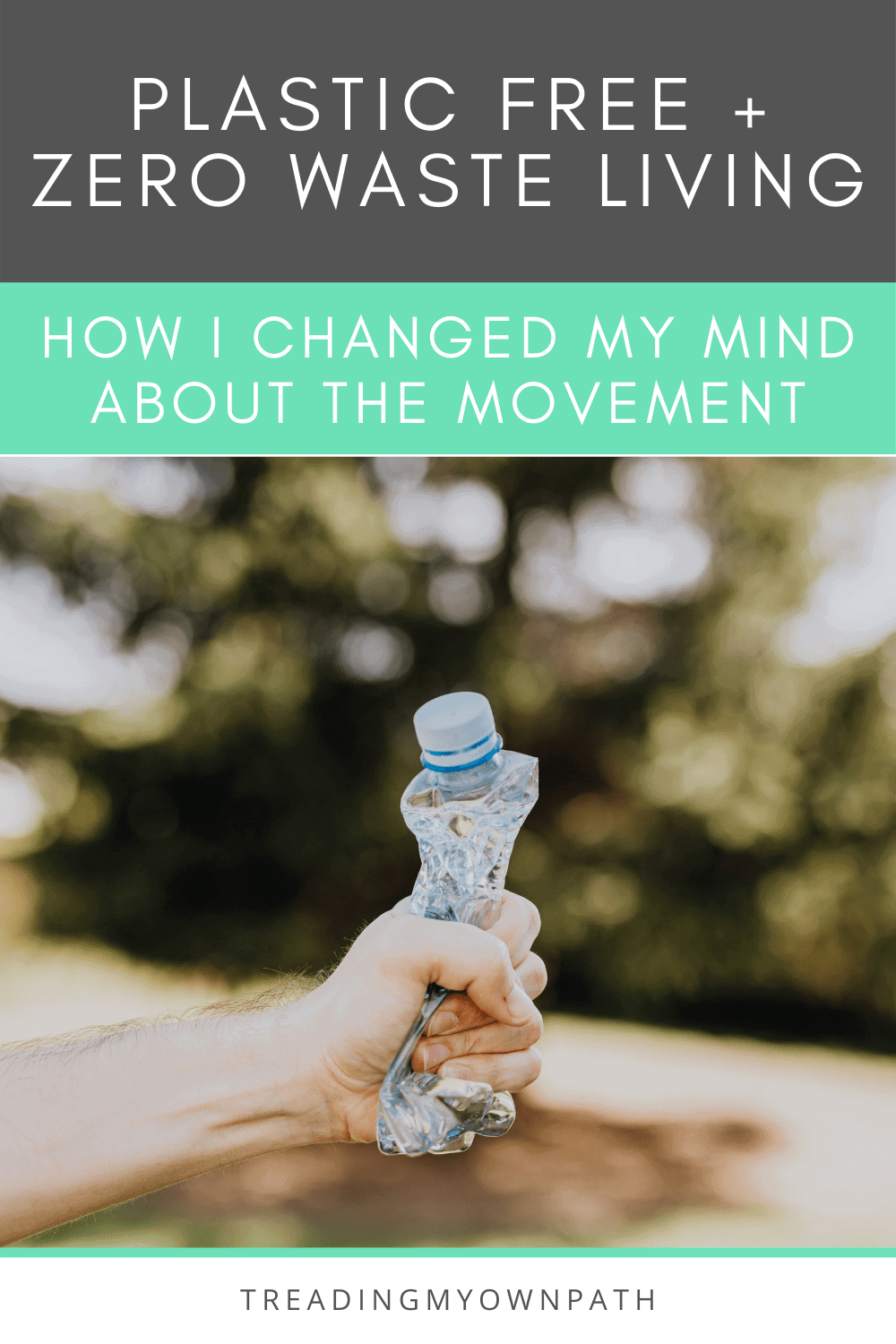
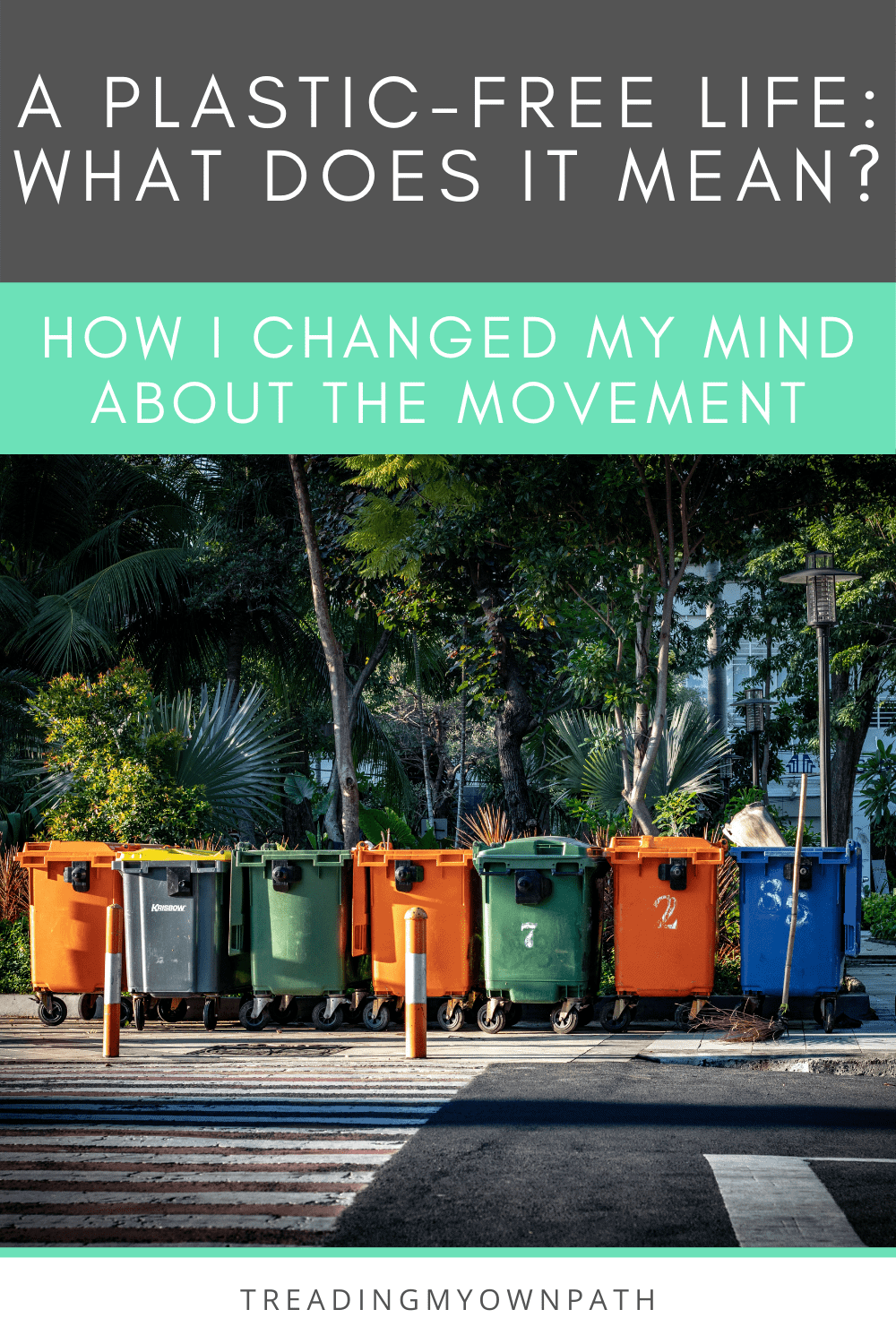

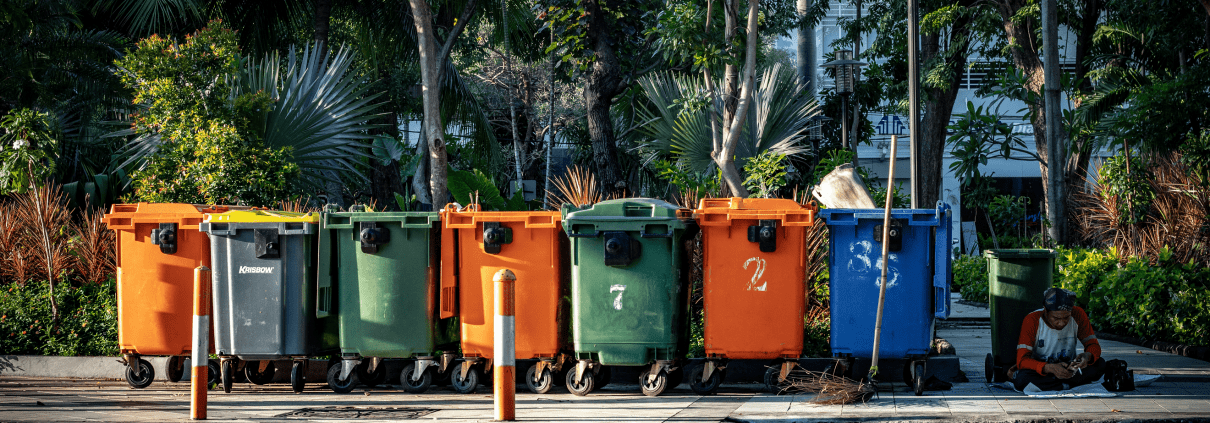
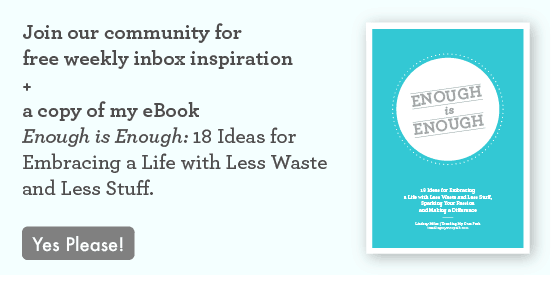




Hi Lindsay, This is a great comment! Thank you! It chimes with something I read this morning about being passionate but too intense, almost willing other people to fall in line with your way of doing things, and perhaps feeling slightly superior!
I also think it is important to encourage others towards less waste and important to realise that:
1. We each don’t have all the answers and need to be honest that despite our best intentions, for one reason or another, we won’t always make the best choice for the planet.
2. Our seeming to have it all together can be discouraging to other people or place pressure on them (as you said, even without saying anything).
So, our intention needs to be to be real with other people about the struggles and failures we have and encouraging them to make any positive (less waste) action that they can.
Onwards, ever upwards! Thanks for encouraging me, Lindsay! Love your blog. Thank you!
What a lovely, thoughtful, and compassionate reply. Some good things for me to keep in mind. Thank you for posting!
Thanks Heather! Thanks for sharing your thoughts. There can be a thin line between passionate and overbearing, for sure! I see it sometimes in our zero waste Facebook group too, but it’s usually possible to spot when it’s just a case of over enthusiasm rather than superiority – I think the majority of people mean well. As I do! ;)
Yes, both your points are great. I actually want to write a post about flying soon, which will definitely talk more about point 1. And yes, I’ve always said this and I do think it’s important (and I think everyone can do more of this) – talk about the failures too!
Thanks for stopping by!
Hi Lindsay! I’ve been reading your posts for a while now, but have never had the chance to stop by and comment. Thank you for sharing this and for all that you do. It’s really helpful and interesting content. I can relate so much to your post! It definitely makes me feel a little better about my own journey.
I’m going through my own relaxing stage about being waste free since getting with my husband (who wasn’t really waste conscious when we met) in the past year. It has surprised me, but at the same time life has been a lot more enjoyable in some ways.
We live in a big apartment complex and had been taking the time and effort to separate out the trash/recycling/compost and to wash/reuse ziploc bags until we could afford some stasher bags for the last four months.
Unfortunately washing those bags really got to be tedious after just half that time, plus we were worried about bacteria, and portioning out bulk meat in the freezer is just so much easier to do with ziplocs. So I slowly have given that up. On top of that, we realized that there are a lot of residents in the complex who don’t take the time to sort their waste. The end result is that our trash area is always in such a state of disarray that management has given up and decided to hire a junk moving company to indiscriminately dump trash/recycling/compost into the back of their trucks. Woof. It’s hard to blame them given how much of a change management campaign they would have to run to change residents’ habits.
So we stopped composting, and loosened up some on on recycling though not all of it, even if it all does go to the same place. I will probably never feel comfortable enough to throw paper in the trash. I have the lucky dual background of having a French mom (they just banned plastic cutlery and plates there, and they have this thing where they don’t pick up your trash if you don’t sort it correctly) and having grown up in the San Francisco public school system (where you learn how to compost/sort in elementary school and most trash areas contain all three bins), so it was pretty much ingrained from the start.
The bright side is that we are using the apartment waste fiasco as extra motivation to save for our own house, with our own food & yard waste container, backyard, and other waste-free positive lifestyle things.
I am planning to buy Ziploc bags tomorrow at Costco for the first time since I gave them up… Me “from 3 months ago” would be appalled, but Me “now” is reminding myself that it’s not the end of the world, and that I’ll be able to make a lot more of a difference once we own our home and dig in to our community so that we may, God willing, give back in a way that will matter much much more.
Hi Manon, and thank you for taking the time to comment! I loved your story – well obviously not the bit about the waste all going in the truck, but the way you illustrate exactly that life has ups and downs and we can’t always have everything perfect.
I love your practical ‘looking to the future’ plans whilst recognizing that right now, you’re loosening things up. I really don’t want to lose sight of the small things in my own journey because I do believe that small things add up – but at the same time, I can’t lose my mind over the way life sometimes unravels. And so sometimes I need to look at the bigger picture and as you say – give back in a way that matters more.
Good luck with the saving and don’t let the apartment waste situation make you too mad!
Very interesting read! I too was once very strict with my sustainability practices, but now have loosened the reigns a bit, as I feel it is all interconnected. Based on the way we structure our economies nowadays, I think it would be unfair to put all the burden of tackling waste on individuals. In an economy where the typical working week is 40 hours (often longer), it is no wonder that people prefer convenience over consideration.
I am a big proponent of moving towards a degrowth society (one where care work is valued and less time is spent in regular jobs), as I believe that would free up a lot of the time needed to build communities, repair items instead of chucking them and making food from scratch instead of relying on convenience.
That is not to say we shouldn’t do our bit in the meantime, but I agree with you that we cannot be perfect in a world that is set up for us to live unsustainably!
Hi Clarissa, I agree with you entirely :) It isn’t fair that we take on the entire job of sustainability as individuals when the entire system is set up in a different way. I see the way I use my energy shifting – from worrying about the finer details of my own waste to applying pressure on businesses and governments and investing more in my local community. We won’t get to less waste if we don’t include everyone. And yes, we can still do as much as we can do ;)
Thanks for explaining your journey. I totally agree with your statement about just doing the best that you can. We are all at different stages of “enlightenment” and have individual journeys. I’m glad you are sharing yours..
Thanks Liz. Yes that is so true, and I know that there will many more stages for me – I don’t think this journey ever comes to an end…
I am right there with you on your journey. It is not so much about saving the whole world, but consciousness raising and making a difference in your family and community. I get upset with plastic wrapped veggies, but I hate food waste much more. And give all scaps to chickens and very willingly take scraps from family and friends. I try to recycle any soft plastics, but it’s tricky. You know like when they put a bunch of stickers on the plastic and it’s tough to cut out and you can’t recycle it, ahaaah!!!!!! But I move on. I love to be reminded and motivated to keep chugging along through the difficulties.
I encourage everyone to just do their best because not everyone can do everything but I think that if we all try to be as sustainable as possible and don’t condemn others for doing or not doing something then together we can save the planet.
This really resonates with me. I’ve never been ZERO waste but I do everything I can within reason. I got tired of not having mushrooms. Every place in town sells them in a plastic tub-no more paperboard :-( So I buy mushrooms-I’m using as many containers in my home as I can. I buy our organic veggies in the large quantities. Always plastic. I think it’s less packaging overall than multiple smalls. I love Farmer’s Market season as everything is loose so in my cloth bags it goes. They do plastic the baby leaf salad greens-the only plastic I see there! And then our CSA kicks in late May-again, only plastic will be the baby greens.
One thing I never gave up are Ziploc bags. I wash and reuse until they have holes. I suspect they each get used at least 10X.
We have a garden so any waste food goes into the compost heap in the back corner although I try hard not to waste edibles.
We all need to do what is reasonable in our lives. It won’t eliminate the problem, but every bit helps!!!!
Hi Elle:
I like mushrooms too – and the containers are PERFECT for starting tomato and pepper seeds in vermiculite. Just poke about 6 holes in the bottom and you can put 12-15 or more seeds per container. This way you can start them on the heat mat w/o taking up too much room. Then just prick them out with a skewer and plant the seedlings (deep!) into separate containers.
Hope this helps, Kathie
Thank you Lindsay for telling your honest and intelligent story!
Yes it is most certainly a crowded world full of inventions that are the opposite to an organic natural state… It is hard to know how to live well. I admire your commitment to this zero waste lifestyle. Best regards Hanna – Sweden
Great article thanks for this, I agree big picture is important and you can’t overthink the little details or you get lost in your own journey… big impact is when we can include others in a positive way!
Agree with all of the above and your article Lindsay. I have allowed myself to no longer feel guilt about the plastic we may bring into our house because there is no alternative to what I buy in the food line. Still does my head in with all the fiddly bits of plastic wrapped round the glass jar but I will continue to try and find alternatives. The trouble with this is it means travelling further from our home which means more fuel, dilemma. We compost, we sort our rubbish and take soft plastics to a recycle centre. We pick up plastic off the street when we go for a walk, I have even been known to sort my neighbors rubbish before the truck arrives (they have gone to work by then). It is never going to end the unease of buying goods, the rubbish created that can’t go anywhere else except landfill. I avert my eyes in shopping centres because all I can think of is ‘this is all going to end up in landfill’. I have eased off ranting at my family, I called it keeping them informed, they had other ideas but surprisingly they are using their bins correctly now. We all just have to do our best and try and get the message across, gently to others.
Hi to you all. I have all these dilemmas too, but am energised by the massive cultural shift we are all living through. It IS getting easier to be zero waste because companies who sell us stuff are getting on board now – consumer pressure is real. I work for a fair trade company, so there’s a tension with selling stuff/creating business in developing countries, but people still want to buy presents, so here we are. Even my suppliers are now packaging their goods in shredded waste paper, reusing cardboard etc. All of us, together, are changing the world.
Thank you for sharing the stages you have gone through, Lindsay. All I can say is, you speak my language.
I don’t blog as regularly now, but I think i see myself in the path you followed – the various stages. Maybe at a slightly different timeline to you, too. But, it’s all good – each and every step
we need this kind of thinking and people more
you inspire me i will do this a lot
I’ve only just stumbled across your site but it has given me so much hope that I can finally get started on my zero waste / plastic free living. After reading this blog, I have realised that I should just start with the small things and know that I’ll probably make mistakes (damn those sneaky hidden plastics!) along the way. Thank you for helping me (and lots of others) make a difference in this beautiful world!
Really enjoyed this article. We are all on a journey. We have tried to live sustainably in various ways-
food scraps to chickens, anything else biodegradable to compost, solar hot water, cooking with gas, recycling everything possible ( our family of 8 rarely had the landfill bin even 1/4 full and we weren’t even trying very hard), preparing most of our own meals, including school lunches, buying in bulk to reduce packaging(& I was a big fan of re-usable shopping bags from early on- prompting comments and funny looks when Woolies first introduced their green bags and I had a trolley full of them☺️) ,using hand me down and op shop clothes, toys etc., preferring fresh air to air conditioning, hanging clothes on the line instead of using the drier, preferring family time to screen time( saving electricity is only 1 of the benefits!), not leaving fans/lights/heaters on unnecessarily..
Still after all these years, I’m making decisions about where to source food , clothes etc. from, how best to store things, how to dispose of all the waste that comes our way( personal peeve- “freebies “ advertising everything under the sun- water bottles, lanyards, rubber arm bands..).
Perfection can’t ever be the goal- just being good stewards of what we have.
Good to hear your thoughts. I always appreciate a balanced view.
Hello,
I have a small zero waste store on Etsy selling handmade eco mouse mats and zero waste art. I’m planning on increasing my range of zero waste products in future…